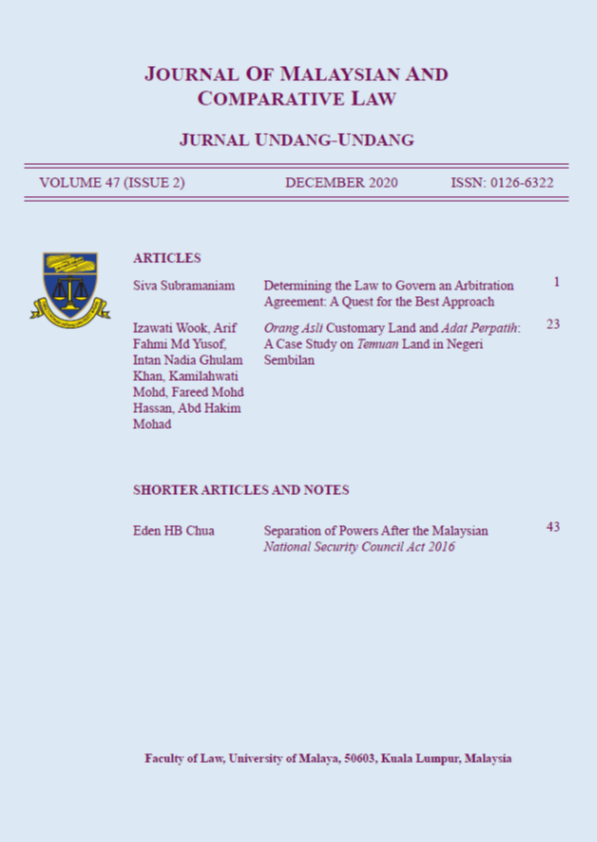Separation of Powers After the Malaysian National Security Council Act 2016
Keywords:
separation of powers, NSC Act 2016, National Security Council Act 2016, Malaysia, ConstitutionAbstract
Since the enactment of the National Security Council Act 2016 (‘NSCA 2016’), there have been concerns that the NSCA 2016 potentially usurps the Federal Constitution of Malaysia. The NSCA 2016 introduces a series of exceptional security measures that bypasses certain constitutional safeguards and lifts constitutional restrictions on the infringement of the liberty of the people. In Datuk Seri Anwar Ibrahim v Government of Malaysia (‘NSCA No.1’), the Federal Court refused to rule on a challenge brought against the constitutionality of the NSCA 2016 except to express doubts on its constitutionality. The Federal Court’s refusal was premised on the reasoning that the challenge was mounted in the absence of a specific exercise of powers under the NSCA 2016. As the case was ‘abstract, academic or hypothetical’ in nature and after considering Article 128(2) of the Federal Constitution and s 84 of the Courts of Judicature Act 1964, the Federal Court held that the case was non-justiciable. This case note critically evaluates this decision in light of the separation of powers principle.









